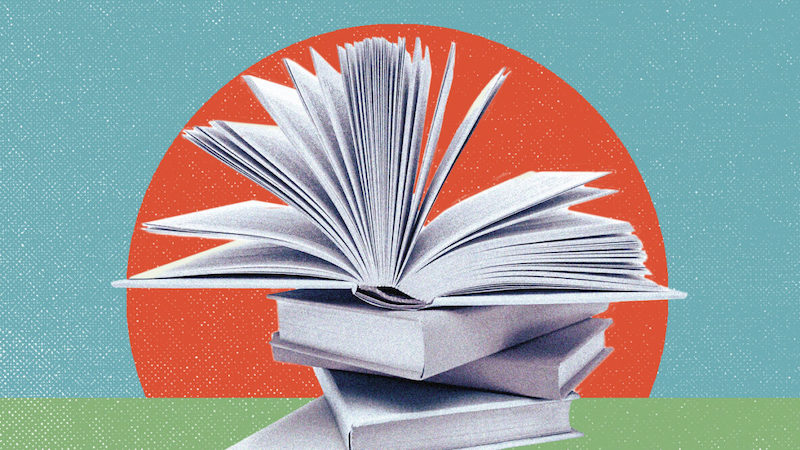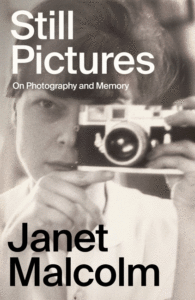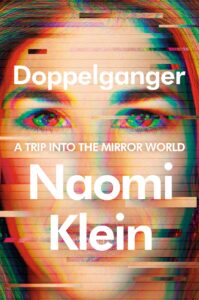
The points are tallied, the math is done, and the results are in.
Yes, all year long the diligent and endearingly disgruntled Book Marks elves have been mining reviews from every corner of the literary internet. Brows furrowed, stomachs growling, they’ve worked from break of dawn to blink of dusk, seven days a week, scouring the book review sections of over 150 publications—from the New York Times to the Sydney Morning Herald, the Toronto Star to the London Review of Books—all so that we can now say with certainty that these are the best reviewed nonfiction titles of 2023.
Happy reading!
1. Waiting to Be Arrested at Night: A Uyghur Poet’s Memoir of China’s Genocide by Tahir Hamut Izgil, trans. Joshua L. Freeman
(Penguin Press)
13 Rave
“There are no scenes of torture, no violence and few sweeping proclamations about genocide. Izgil writes with calculated restraint. As his title suggests, the terror is in the anticipation … This is in effect a psychological thriller, although the narrative unfolds like a classic horror movie as relative normalcy dissolves into a nightmare … Izgil is a soft-spoken poet, not an orator or activist; that’s perhaps one reason his understated account is so effective.”
–Barbara Demick (The New York Times Book Review)
=2. Thunderclap: A Memoir of Art and Life & Sudden Death by Laura Cumming
(Scribner)
13 Rave • 1 Positive
“Genre-defying … Cumming suggests that we recall the past through pictures … Cumming clearly loves these paintings, and by weaving together vivid evocations of ones that particularly move her with brief biographies of the men and women who painted them, she invites us to share that love … Like all good elegists, Cumming, too, brings the dead to life in the very act of mourning them.”
–Ruth Bernard Yeazell (The New York Times Book Review)
=2. Winnie and Nelson: Portrait of a Marriage by Jonny Steinberg
(Knopf)
13 Rave • 1 Positive
Read an excerpt from Winnie and Nelson here
“A powerful, intimate and ultimately heartbreaking account … Painstaking detail … Many of the details in Steinberg’s masterful account have long been public knowledge thanks to court cases, newspaper articles and previous books. But his supreme contribution is in his ability to portray clearly and critically Nelson Mandela’s flaws and Winnie Mandela’s crimes, while expressing sympathy and understanding for both their courage and their pain.”
–Glenn Frankel (The Washington Post)
4. The Wager: A Tale of Shipwreck, Mutiny and Murder by David Grann
(Doubleday)
20 Rave • 2 Positive
“[A] propulsive, finely detailed seafaring saga … This is a ripping yarn disguised as an acute study of group psychology, or perhaps the other way around. However you categorize The Wager, it is a remarkable book … Grann guides us through this process, step by step, storm by storm, man by man, in prose that the writers he references, including Herman Melville and Joseph Conrad, would appreciate. The book invites landlubbers in with vivid descriptions of life at sea, peppered with explanations of phrases and idioms given us by that life.”
–Chris Vognar (The Boston Globe)
5. King: A Life by Jonathan Eig
(Farrar, Straus and Giroux)
14 Rave • 3 Positive • 1 Mixed
“Outstanding … The majority of the book shows who King really was behind the famous speeches and celebrity. Digging through thousands of hours of telephone transcripts and FBI wiretaps of conversations between King and other political and civil rights leaders, Eig offers an intimate, multidimensional biography. His reconstructed dialogues give the reader the feel of being in the room with King and other key players.”
–Ousmane Power-Greene (The Boston Globe)

6. The Marriage Question: George Eliot’s Double Life by Clare Carlisle
(Farrar, Straus and Giroux)
13 Rave • 9 Positive • 1 Mixed
“Intriguing, often brilliant … Ultimately, Carlisle’s thoughtful, comprehensive account of this particular liaison exquisitely probes the complex, thorny, and fascinating question: How much does our choice of partner determine who we ultimately become?”
–Jenny McPhee (AirMail)

7. Still Pictures: On Photograph and Memory by Janet Malcolm
(Farrar, Straus and Giroux)
17 Rave • 13 Positive • 2 Mixed
“Superb … How could a writer so famously, effectively skeptical of subjective stories write an autobiography? Malcolm solves the problem with characteristic elegance: Nearly every short chapter of Still Pictures is headed by a grainy black-and-white photograph, whose calls to memory she heeds, repels and bargains with in turn by subtle turn. Her comfort with incompleteness becomes a virtue … Most of this memoir consists of appreciative and often very dryly funny memories of her devoted, literate family … Still Pictures has the clarity and brevity of a book by a writer who knows that time is short, and that there’s much to say, much to convey, which will otherwise be lost forever … A lot gets lost in that transition, Malcolm argues in this final, splendid, most personal work of her long career. A lot—but not everything.”
–Charles Finch (The New York Times Book Review)

8. Doppelganger: A Trip Into the Mirror World by Naomi Klein
(Farrar, Straus and Giroux)
10 Rave • 5 Positive • 3 Mixed
Listen to an interview with Naomi Klein here
“…a compelling and far-reaching political detective story … Especially when it comes to the political fallout from the pandemic, no other book I know of has been this intellectually adventurous, this loopily personal, or this entertaining … Known primarily as a critic of globalization and a climate activist, our Naomi turns out to be that rarest of specimens: a leftist with self-irony … Despite drawing such devastating connections, Klein maintains a perfectly calibrated tone toward Wolf, favoring calm argument over derision or contempt. Her preferred move is excavating the kernels of insight from even Wolf’s most out-there claims … As a writer and a theorist, Klein is particularly talented at knitting together the sweep of history and the banalities of the present. She’s equally attuned to what doppelgängers can mean in a more transhistorical sense … The originality and political courage of this book is to turn that into an opening, an entirely different way of thinking about our enemies—and our selves.”
–Laura Kipnis (The Nation)
9. Wifedom: Mrs. Orwell’s Invisible Life by Anna Funder
(Knopf)
10 Rave • 5 Positive • 5 Mixed • 1 Pan
Listen to an interview with Anna Funder here
“With the precision of a historian, Funder cobbles together scant details to reconstruct a life. And with the imaginative force of a novelist, she speculates in clearly sign-posted moments on what that life was like … Considering how little information Funder has to work with, Wifedom is a spectacular achievement of both scholarship and pure feeling.”
–Jessica Ferri (The Los Angeles Times)
10. Monsters: A Fan’s Dilemma by Claire Dederer
(Knopf)
13 Rave • 10 Positive • 3 Mixed • 4 Pan
Listen to an interview with Claire Dederer here
“Excellent … Dederer is frank about how her own experience shaped her encounters with art … Every critic has their own biases, their own blind spots, and ignoring them does not erase them. In criticism, as in memoir, the only way to work through these biases is to admit them—if not to others, at least to oneself. The value of the kind of criticism that Dederer practices, one that publicly acknowledges her own subjectivity, her own loves and hatreds, is that it makes the difficulty of this process visible.”
–Melissa Febos (The New Yorker)
*
Our System:
RAVE = 5 points • POSITIVE = 3 points • MIXED = 1 point • PAN = -5 points
The ten books with the highest points totals are then ranked by weighted average

